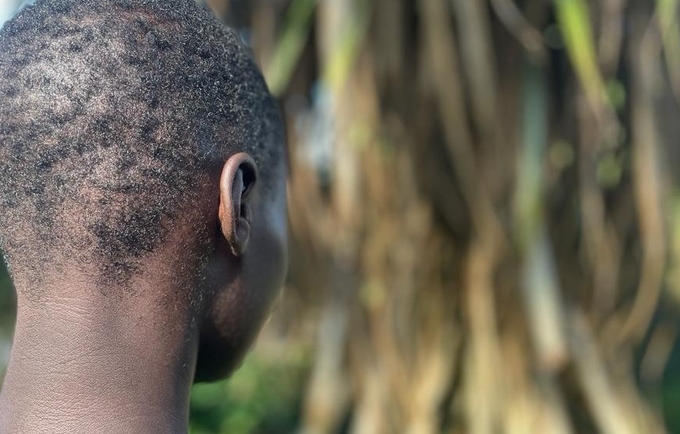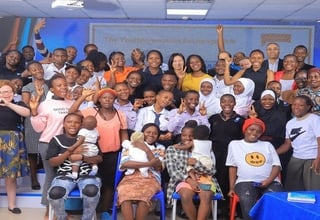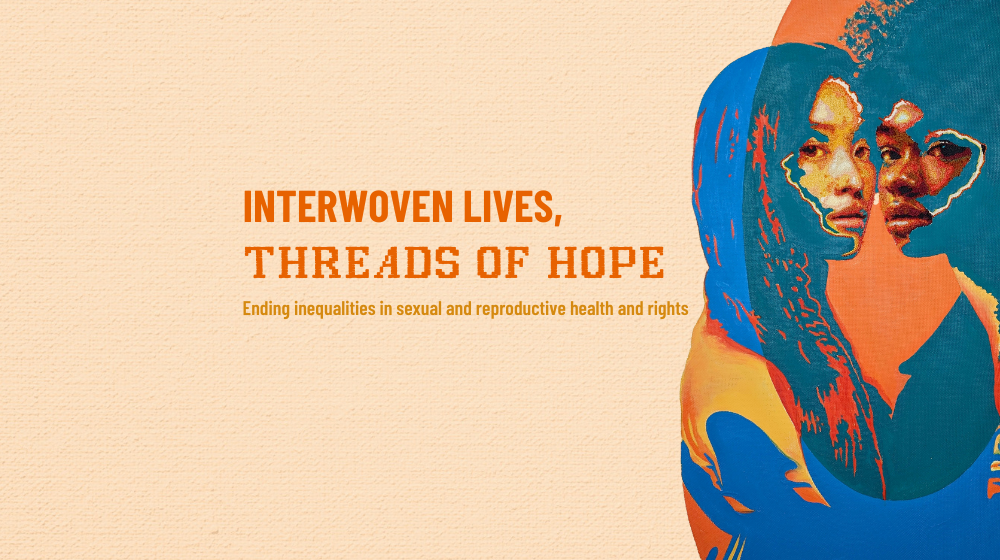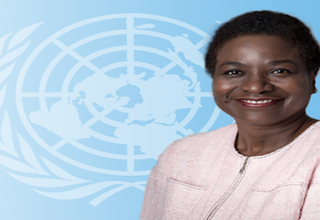I feel so happy that I can now decide when I can have a baby.
Irene's childhood was marked by a diagnosis of cerebral palsy and cognitive impairment, making her especially vulnerable in her tight-knit community. Her journey took a challenging turn with an unplanned pregnancy, leading to a miscarriage and exacerbating the prejudices she faced.
In Bugaluka village, where the nearest health facility is a daunting 15km away, accessing crucial sexual and reproductive health and rights (SRHR) information and services provided a difficult task. This is the reality many like Irene face— limited resources, compounded by social norms and myths, leaving them on the fringes.
Currently Uganda’s population is predominantly young with nearly 70% under the age of 24. Teenage pregnancies have remained high and stagnated at 24% for the past decade, according to Uganda Demographic Health Survey 2022. The eastern region where Kamuli district is found, has one of the highest levels of teenage pregnancies. For young girls like Irene, the limited access to SRHR services means that they are unable to protect themselves or even make the right choices for their health. This leaves them vulnerable to unwanted early pregnancies as well as HIV infections. They are likely to give birth to children who go through the same. It is a vicious cycle.
It is for this reason that the EYE project was launched in Kamuli and Mayuge districts. These districts are worst hit when it comes to teenage pregnancy. The EYE project, a beacon of change, has allowed the young people in Bugaluka village to access SRHR information and services. One of the key interventions under the project is routine outreaches in which the project brings SRHR information and contraceptive services closer to young people and women in communities.
Irene's mother, attending an integrated contraception outreach session, shared her daughter's story, opening a door to a future where choices could be made and stigma could be crushed. Through this intervention, Irene and her mother received not just information, but a lifeline. Irene was empowered to make informed choices about contraceptive methods, breaking free from the shackles of stigma and unplanned pregnancies. Irene reflects,
“I feel so happy that I can now decide when I can have a baby.”
The EYE project is funded by the Norwegian Embassy in Uganda and implemented by the United Nations Population Fund (UNFPA) in partnership with Marie Stopes Uganda, Care Uganda National Population Council, and Naguru Teenage Information and Health Centre. The 3-year project is implemented in close collaboration with ministries, departments and agencies including the Ministry of Health, Ministry of Education And Sports and Ministry of Gender Labour and Social Development and Uganda Bureau of Statistics.
To date, the EYE project has reached over 20,000 adolescents and young people with information and services on SRHR with a total coverage of 50,000 people. “Ruth's story reminds us of the importance of going the last mile to ensure everyone has access to these life-changing services," reflects Dr. Ronald Ssali- EYE project.
The EYE project , with its multifaceted approach of creating an enabling environment for SRHR, demand generation and delivering essential services to adolescents, stands as a testament to the transformative power of intervention. Yet, challenges persist—poverty, social norms and inadequate services for SRHR.
The project charts a hopeful course ahead by extending SRHR services to remote areas, ensuring inclusivity every step of the way. In Bugaluka Village and beyond, Irene's journey becomes a guiding light toward a future where everyone is considered.
In navigating life's complexities, Irene has found her rhythm, her story standing as a testament to the tangible impact of UNFPA and partners. UNFPA’s goal is to ensure that every woman, adolescent, and youth everywhere, especially those furthest behind, have access to integrated sexual and reproductive health services and exercised reproductive rights, free of coercion, discrimination, and violence.
We thank The Embassy of Norway in Uganda who are making this change possible—transforming communities, one empowered life at a time.




